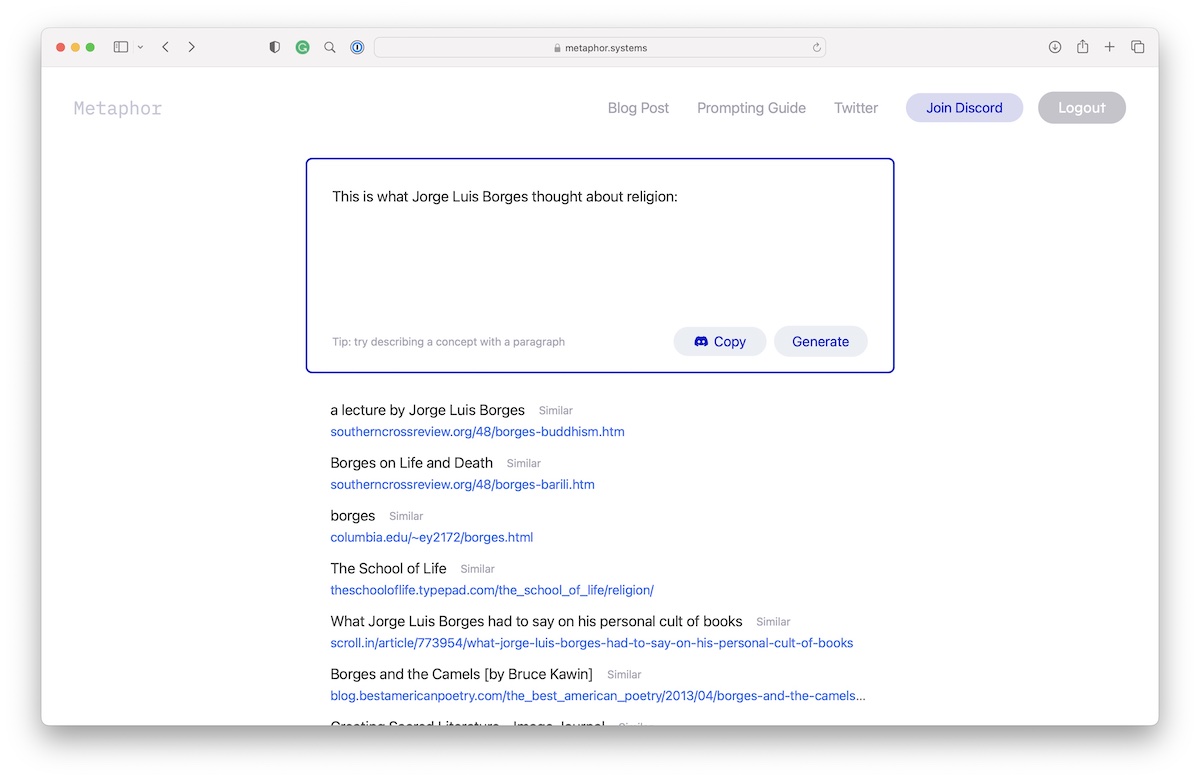The architecture of information:
A listener asked this question for my recent AMA episode of The Informed Life podcast:
What search-related trend are you most excited about?
I answered that I’m keen on AI-driven image generators like DALL-E and Stable Diffusion.
While not what we usually think of as “search,” these systems do an incredible job of translating English sentences into instructions for a computer to do useful things. Similar interfaces could be used for searching through large text repositories.
In current search systems, you must know specific aspects of the text you’re looking for when issuing such a search, whether it’s a verbatim text string, the document’s title, or the author’s name.
But there are already systems that let you search using vaguer queries using AI. For example, I’ve been beta-testing a product called Elicit, which uses language models to help you search through academic literature. The results are pretty good.
At the end of the podcast segment, I suggested we might see more AI-driven search interfaces in the future. Lo and behold, yesterday I saw Metaphor, which seems almost precisely what I was imagining. This is how the product is introduced:
Web search hasn’t changed in 20 years. We’re building a new search engine from scratch, using the same ideas behind DALL-E and Stable Diffusion. It understands language — in the form of prompts — so you can say what you’re looking for in all the expressive and creative ways you can think of. And, if we’re lucky, it might make the internet feel a little less like a wall of ads.
Once you log in (using a Discord account) the system offers more details:
Metaphor is a search engine that predicts the next link, similar to the way that GPT-3 predicts the next word. You search with it by writing a prompt: a phrase that looks like it could end with a link.

Metaphor’s user interface showing the search box and returned links.
I remember the first time I saw Google Search. It was exciting because of its (much) better results. But its UI was familiar; we’d used search engines like AltaVista and Excite before.
Even though interactions with Metaphor happen through a search box, how you write queries is a bit different. So onboarding takes you through a multi-step process to reframe your understanding of how to ask questions. This sentence was helpful:
You can think of it as a strange kind of autocomplete, where Metaphor only knows how to speak with links.
I’ve played a bit with Metaphor and find it exciting — both as a demonstration of what can be done with AI-powered search interfaces and as a tool in itself.
One caveat: I couldn’t find details on the site about who is behind this system or its terms of use. I wish they made that clearer upfront. (The founders are listed in their Y Combinator page.)